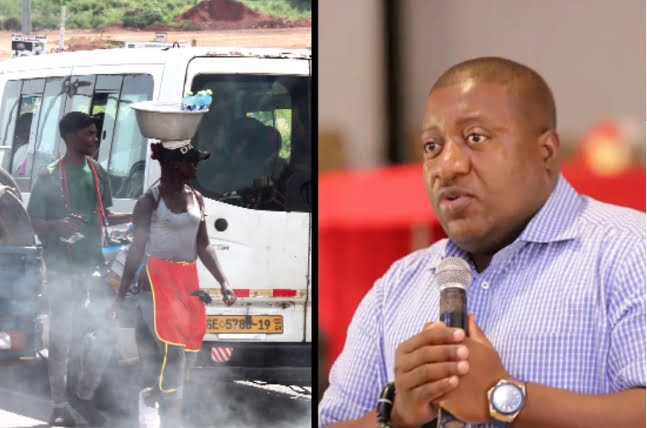Henry Nana Boakye, commonly known as Nana B, the National Organiser of the ruling New Patriotic Party (NPP), has voiced his concerns regarding the implementation of the Emissions Levy and is advocating for its immediate withdrawal.
In an interview with Accra-based Peace FM on February 2nd, Nana B called upon President Akufo-Addo to direct the Finance Minister to repeal the levy, citing its perceived unnecessary nature.
Nana B argues that emission levies are typically associated with developed nations that have embraced electric vehicles as part of their climate change mitigation strategies. He emphasizes that Ghana has not yet reached a stage where electric cars are widespread enough to justify imposing such a levy on petrol and diesel vehicles.
This stance underlines his belief that the current imposition of the Emissions Levy may not be appropriate for Ghana’s current socio-economic context.
The Ghana Private Road Transport Union (GPRTU) has also voiced its concerns over the potential impact of the Emissions Levy Act, 2023 (Act 1112), suggesting a potential fare increase as a response to its implementation.
Despite the earlier suspension of a proposed 20 per cent fare hike in January, following intervention by the Transport Ministry, the government proceeded with the implementation of the emissions levy tax. This tax, intended to address carbon emissions from vehicles, has sparked apprehension among various stakeholders.
Nana B’s call for the withdrawal of the Emissions Levy underscores the growing discontent among segments of the population regarding its implementation. His plea to President Akufo-Addo highlights the urgency of the matter from the perspective of the ruling party.
By urging the government to reconsider the levy, Nana B seeks to address the concerns raised by stakeholders such as the GPRTU and alleviate the potential financial burden on citizens in the face of rising transportation costs.
The debate surrounding the Emissions Levy reflects broader discussions on environmental policies and their implications for economic development and social welfare. Nana B’s intervention adds a political dimension to this discourse, emphasizing the need for careful consideration and stakeholder engagement in the formulation and implementation of such policies.
His stance aligns with efforts to balance environmental sustainability with economic growth and social equity, underscoring the complexities inherent in navigating contemporary environmental challenges.
As the discourse continues, it remains to be seen how the government will respond to Nana B’s call for the withdrawal of the Emissions Levy. The outcome of this debate will not only shape environmental policy in Ghana but also influence perceptions of governance effectiveness and responsiveness to citizen concerns.
Nana B’s advocacy amplifies the voices of those questioning the rationale behind the levy and signals a broader dialogue on environmental governance and policy-making processes in the country.


